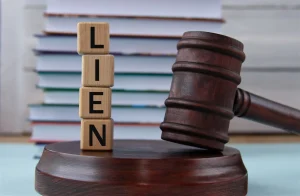
Liens and judgement are legal terms that often carry significant financial and legal implications. Understanding these concepts is crucial for anyone managing their finances or involved in legal matters. In this blog, we’ll unravel the mysteries of common liens and judgments, shedding light on what they are and how they can impact your life.
-
When you take out a mortgage to buy a home, the lender places a mortgage lien on the property, allowing them to foreclose if you default on payments.
-
Contractors and subcontractors can file mechanic’s liens when they haven’t been paid for construction work. These liens can complicate property transactions.
-
Governments can place tax liens on your property if you owe back taxes. Resolving these liens is essential for property ownership.
-
When a court awards a judgment in a civil lawsuit, the winning party can place a judgment lien on the losing party’s property to collect the owed debt.
-
A judgment orders the debtor to repay a specific amount, including the debt, interest, and legal fees, to the creditor.
-
Creditors can enforce judgments through wage garnishment, bank account levies, or placing judgment liens on property.
-
Judgments can severely impact credit scores, making it challenging to obtain loans or credit.
-
In some cases, judgments can be challenged if they’re believed to be unjust.




